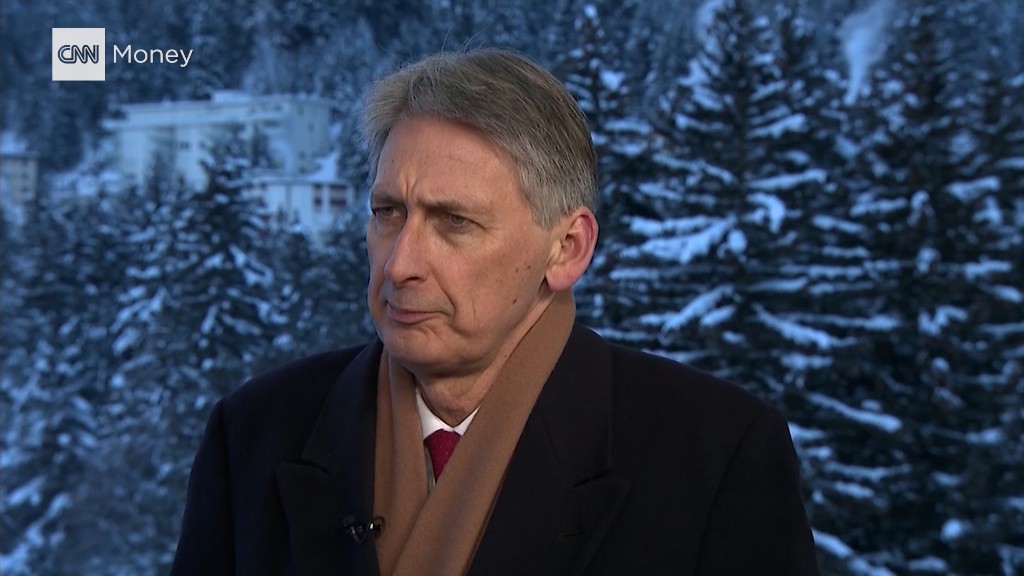
The U.K. economy grew steadily in 2016 -- but there's plenty to worry about.
The first official estimate of fourth quarter GDP published Thursday showed the economy grew by 0.6% over the third quarter, the same pace as the two previous quarters. For 2016 as a whole the economy grew 2%, down from 2.2% in 2015 and 3.1% in 2014.
But warning signs are piling up. Retail spending fell slightly in December -- typically a strong month for sales -- investments have been put on hold because of uncertainty over Britain's relationship with the European Union after Brexit, and some big banks have said they will start moving thousands of jobs away from London.
"Every major sector of the economy grew last year, which is further evidence of the fundamental strength and resilience of the U.K. economy," said Chancellor of the Exchequer Philip Hammond. "There may be uncertainty ahead as we adjust to a new relationship with Europe, but we are ready to seize the opportunities to create a competitive economy that works for all."
The pound is still 15% down against the dollar compared to the EU referendum day in June. The slump is boosting British exporters, but hurting consumers at home. Prices on a wide range of consumer goods from chocolate bars and beer to iPhones and toys are rising as a result.
"Retail data for [December] has shown some signs of slowing spending among consumers and if the upcoming number for this month also confirm the same trend, we could be heading towards serious trouble," said Naeem Aslam, chief market analyst at Think Markets U.K.
Investment in the auto sector slumped to £1.66 billion ($2.1 billion) in 2016 from £2.5 billion ($3.2 billion) in 2015, according to the Society of Motor Manufacturers and Traders.
Related: Trump says he wants a U.K. trade deal
The government expects to borrow an extra £58.7 billion ($72.6 billion) over the next five years because of an economic slowdown. The Office of Budget Responsibility, an independent government agency, said that growth will slump to just 1.4% in 2017, the weakest since 2009, according to IMF data.
Prime Minister Theresa May wants to start the formal process of leaving the EU by the end of March.
May is meeting President Trump at the White House on Friday, hoping to start discussions about a future trade deal between the two countries. Trump said he would put the U.K. at the front of the queue for a trade deal, but experts warn an agreement is far from certain, and will take years to achieve.


